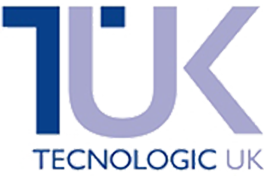Panel-mounted PID (Proportional-Integral-Derivative) process control has been a vital component in industrial automation for many years, providing accurate control of temperature, pressure, and other process variables. These controllers are typically mounted on a control panel and used to regulate the output of heating, cooling, and other process control equipment.
Here is a quick look at some of the trends that are shaping the future of panel-mounted PID process controllers:
Trends of panel mounted PID process control.
Connectivity – Increasing networking and connectivity capabilities are allowing more complex, multi-device communications. These advancements in communication will increasingly provide real-time monitoring and control of entire systems.
Improved user interface – The user interface of panel-mounted PID process control is expected to improve significantly. They will feature larger, high-resolution touch screens, improved user experience and more advanced UI allowing operators to monitor and control systems with greater ease and accuracy.
Integration with cloud computing – The integration of panel-mounted PID process control with cloud computing is also set to be a significant trend in the future. This will allow operators to access data and control the system from anywhere in the world, improving the efficiency of the system. Tecnologic proudly stocks a range of remote control and ‘app access’ process controllers.
Customization – Panel-mounted PID process control is expected to become more customizable in the future. This will allow operators to tailor the system to their specific needs, improving efficiency and reducing costs.
Artificial intelligence – The use of artificial intelligence (AI) is also set to be a significant trend in the future of panel-mounted PID process control. AI algorithms will be used to optimize the system’s performance, reduce energy consumption, and improve overall efficiency.
how can AI enhance performance and improve control accuracy within PID process control?
Adaptive Control: AI can be employed to develop adaptive PID controllers that can continuously adjust the control parameters based on real-time process data. These controllers can learn and adapt to changes in the process dynamics, allowing for better control performance under varying operating conditions.
Nonlinear Control: Traditional PID controllers are designed based on linear assumptions. However, many real-world processes exhibit nonlinear behaviours. AI techniques such as neural networks or fuzzy logic can be integrated with PID controllers to handle nonlinearities effectively. The AI component can learn the process behaviour and provide appropriate control actions to improve control accuracy in such cases.
Fault Detection and Diagnosis: AI algorithms can be employed to analyze process data and detect anomalies or faults in the system. By monitoring various process variables, AI can identify abnormal behaviour and trigger alarms or take corrective actions. This helps in maintaining process stability and reliability.
Optimization and Model Predictive Control (MPC): AI can be used to optimize control performance by searching for the best control parameters or optimizing setpoints. Additionally, Model Predictive Control (MPC) algorithms, which utilize predictive models of the process, can be combined with AI techniques to optimize control actions over a specified horizon. This results in improved control performance and efficiency.
Advanced Process Monitoring: AI can assist in monitoring the process by analyzing large amounts of sensor data in real time. It can identify patterns, trends, or correlations that may not be apparent to human operators, allowing for early detection of process anomalies and the potential to prevent failures or breakdowns.
Data-Driven Modeling: AI techniques can be utilized to develop accurate models of the process based on historical data. These models can then be used for simulation, control design, and optimization purposes. Data-driven modelling techniques, such as machine learning algorithms, can handle complex process behaviours and provide better insights into system dynamics.
Tecnologic prides itself on supplying and advising on the best products available to achieve the most efficient and accurate systems for control, across far-ranging and diverse sectors. The advancements in connectivity, user interface, cloud computing, artificial intelligence, and customization, will see a new generation of controllers and we look forward to the future, and being part of an increasingly advanced era of industrial automation, providing accurate and efficient control of a wide range of process variables. As technology continues to evolve, the potential for panel-mounted PID process controllers is only set to grow.

